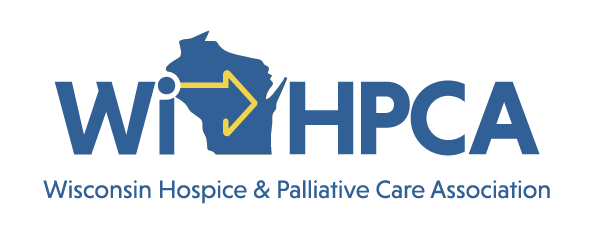On June 6, the Governor’s Task Force on the Healthcare Workforce held a public meeting on the campus of Marquette University’s School of Dentistry. The bulk of the livestreamed portion of the meeting was taken up by a panel discussion on education and training. The following individuals participated in this discussion:
- Christina Patrin, Health Science Education Consultant, Wisconsin Department of Public Instruction (DPI)
- Danielle Cook, Education Director, Health Sciences, Wisconsin Technical College System (WTCS)
-
- Note: She is a task force member.
- Dr. Melissa Weege, Clinical Associate Professor, Radiation Therapy Program Director, UW-La Crosse
- Rebecca Larson, Executive Vice President for External Relations, Wisconsin Association of Independent Colleges and Universities
These panelists each gave some background information on their respective organizations, then discussed challenges, and possible solutions. Patrin noted that while 60 percent of school districts in the state have a direct patient care training pathway (program) embedded in their schools, she noted that it is difficult to start such pathways at high schools. Cook, Weege and Larson noted a number of similar challenges, including lack of classroom space, challenges in hiring faculty due to relatively low compensation levels, and continuing financial challenges for students.
Next, the panelists proposed various solutions, including the following:
- Loan forgiveness for all health faculty, not just nursing faculty.
- Need incentives to help hire part-time health faculty.
- Need to do more to promote health care careers early on, even in elementary school.
The task force then moved on to the various breakout discussion groups and then adjournment, neither of which were covered in the livestream of this task force meeting.
It is also worth noting that in preparation for the June meeting, a document listing draft task force recommendations was prepared. The following is a high-level summary of these draft recommendations:
- Faculty
-
- Expand existing incentive programs for nurse and allied health educators (e.g., loan repayment).
- Review compensation of UW and WTCS nursing faculty and develop a plan to make salaries competitive.
- Strengthen Clinical Training and Experience
-
- Continue the state-funded Qualified Treatment Trainee (QTT) grant program, which provides supervision for certain new mental health care professionals.
- Develop a statewide registry of clinical experience sites.
- Expand experiential learning tools (e.g., simulation labs)
- Reduce Barriers to Training
-
- Continue sustainable funding for “wraparound services” for students in need (e.g., childcare, transportation).
- Continuation and expansion of the WisCaregiver Careers Program.
- Strong state support for the UW System and WTCS.
- Reduce cost of completing a Certificate of General Educational Development (GED) or a High School Equivalency Diploma (HSED)
- Expand Apprenticeship Programs in Wisconsin
-
- Leverage state-owned healthcare facilities for apprenticeship expansion.
- Increased funding for state registered apprenticeship programs
- Expand Non-Apprenticeship Work-Based Learning Opportunities
-
- Continue the Worker Advancement Initiative – a grant program that helps Wisconsinites enter and advance in the healthcare workforce.
- Other
-
- Strengthen licensure pathways for veterans and service members.
- Strengthen “dual enrollment programs’ in secondary schools. These programs help students finish post-secondary coursework before graduation and earn certification and/or occupational licenses.
- State support for the Area Health Education Centers (AHEC) program, which educates youth about healthcare careers.
- Recruitment and Retention
- Medicaid Strategies to Support Recruitment and Retention
-
- Expand Medicaid to increase funding for strategic healthcare workforce development.
- Increase Medicaid reimbursement rates to strengthen the workforce for aging Wisconsinites.
- Increase Medicaid reimbursement rates to strengthen the behavioral health workforce.
- Recruiting and Retaining in Areas of Need
-
- Expand state loan repayment/forgiveness for health care professionals working in state-defined shortage areas.
- Increased funding to increase compensation for healthcare professionals at state-operated health facilities.
- Supporting Innovation
-
- Support employer-based workforce development solutions with provider innovation grants.
- Support regional collaboration for workforce development through Workforce Innovation Grants.
- Provide resources to healthcare workers and connect them to healthcare benefit opportunities (for those who lack healthcare benefits).
- Support New or Expanded Pathways to Licensure
-
- Create new licensure pathways for healthcare support professionals, such as community health workers, birth doulas, etc.
- Support licensure pathways for qualified foreign educated professionals.
- Ratify and enter into multi-state licensing compacts.
- Explore alternative pathways for licensure qualification demonstration.
- Strengthen State Capacity for Regulation
-
- Provide the state Department of Safety and Professional Services (DSPS) with enough staff to expedite license processing.
- Enhance state Department of Health Services quality assurance staff capacity.
- Healthcare Workforce Wellbeing and Monitoring
-
- Increase support for healthcare workforce wellness.
- Additional resources to analyze the healthcare workforce, including assessing the workforce, identifying shortages, and targeting and evaluating policy solutions.
